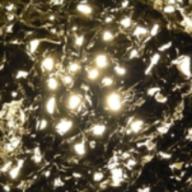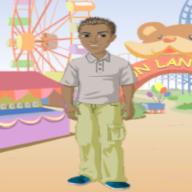✔ 最佳答案
野人師兄深明大義,晚生致敬。
我是 智南師兄之師弟,由彼師兄處獲教良多。智南師兄慈悲,知晚生在公立醫院工作,故將 野人師兄之問題轉告故晚生。今晚生奉 智南師兄慈命,與 師兄分享晚生的個人經驗。
先來個衷心抱歉,因我的電腦輸入中文字頗有問題,如師兄不介意,晚生以英文回答較為快捷,sorry。
First of all, as a Buddhist and medical field worker, I totally agree with 師兄 and 智南師兄's concept that one should minimise disturbance, even touching (let alone dissecting) the body (遺體) of a just deceased person so long as his 神識 is still lingering around as this may cause agony and provoke evil anger of the decease, resulting him to dive into the hell.
However, 師兄 is correct. Practically this is virtually impossible in public hospital, both for operational and hygiene reason. The body will decay if left at room temperature in the ward for several hours and it will also cause psychological stress to other patients sleeping in adjacent beds or in the same cubicles. In peak season when the hospital bed availability is tight, the bed where a patient had just died will be allocated to another newly admitted patient immediately in some hospitals.
--- to be continued ---
2008-04-26 18:12:59 補充:
As for the removal of METALLIC (金屬) implant(殖入物) (e.g. pacemaker [心臟起搏器] or other cardiac device, orthopedic [科] implants like metallic screw and plate . . . etc), they need to be removed ONLY when they may cause potential explosion during 火葬.
2008-04-26 18:13:26 補充:
Pacemaker [心臟起搏器] may cause explosion so it must be removed before 火葬. The doctor has to issue a certificate (火葬紙) to the relatives and it requires any potential explosive metallic implant to be removed and documented before this 火葬紙 can be issued.
2008-04-26 18:14:05 補充:
So for other metallic implants that is not likely to cause explosion like orthopedic [科] implants, they need NOT be removed and can stay inside the body. So removal of the pacemaker is only a safety requirement for 火葬. If the relatives choose for 土葬, the pacemaker NEED NOT be removed.
2008-04-26 18:14:25 補充:
But since 火葬 is very common nowadays, medical staff will routinely remove the pacemaker once a patient is certified dead as it is better than arousing the body again later in the mortuary to do the dissection after the relatives have chosen the mode of cremation, maybe days afterwards.
2008-04-26 18:15:04 補充:
So, if the patient or the relatives have decided not for 火葬 before the patient was certified dead, they can talk to the hospital staff and request them not to remove the pacemaker.
2008-04-26 18:15:18 補充:
This is totally acceptable and the death certificate (死亡證) will still be issued, only without the 火葬紙 and the deceased will not be entitled to 火葬. 土葬 is perfectly ok with the pacemaker in situ.
2008-04-26 18:15:43 補充:
What happens if the patient or the relatives have decided for 火葬? The pacemaker must be removed by dissection, AFTER the patient was certified dead. It is not ethical to remove the life sustaining pacemaker before a person's death.
2008-04-26 18:15:57 補充:
From a medical point of view, the timing is not of any importance, nor the venue for this procedure, provided that no potentially explosive implants are present the moment the body was 火葬. So the timing is more of operational consideration.
2008-04-26 18:16:16 補充:
I have worked in Catholic (天主教) and government hospitals and the practice is similar, though different hospital, or I should say, different doctors / nurses (the doctor responsible for taking out the implant and the nurse is in charge of the ward hence all the operation).
2008-04-26 18:16:37 補充:
Usually, the doctor will remove the pacemaker at the same setting immediately after he certified the patient and then the nurse will call the mortuary staff to escort the body to the mortuary. The removal will be a 5cm cut over the chest wall where the pacemaker was placed.
2008-04-26 18:16:51 補充:
Some doctors will cut the wire connecting to the heart whilst others would try to pull it out. Then the doctor will suture the wound. No anasthesia (麻醉藥) will be used for any procedures after death.
2008-04-26 18:17:32 補充:
But I have also seen many cases where the pacemaker was removed after the body was sent to the mortuary, even the next day. This is usually due to the nurse has overlooked that a pacemaker was inside the patient's body and it was only discovered when the doctor in charge try to issue the 火葬紙.
2008-04-26 18:18:47 補充:
In that case, the doctor will go to the mortuary to do the removal of the pacemaker. But that time, it can be several hours after the patient's death and by that time the 神識 may not be around to feel the pain.
2008-04-26 18:19:16 補充:
So, in theory, the relatives may requests the pacemaker be removed say only 8 hours after the death and this would normally be done in the mortuary as for reasons mentioned above, it is difficult to keep the body inside the ward for half a day.
2008-04-26 18:20:19 補充:
You of course have to give the reason for this "strange" request but I am not sure how many people would entertain this request. The nurse has to explain this extremely rare arrangement to the mortuary staff.
2008-04-26 18:20:46 補充:
The mortuary staff will naturally not prefer a procedure performed there as this is not the usual practice. Many doctors are reluctant to go alone to the mortuary to do the dissection without any assistants.
2008-04-26 18:21:09 補充:
But technically and theoretically it is possible and medically and ethically acceptable. I expect government hospital will usually more likely turn down this request as they very emphasise on following rules. No bonus for them for doing the extra mercy.
2008-04-26 18:21:25 補充:
I find more love in hospital with religious background. you may approach the Patient Relation Officer (PRO) for help to see if the effect is better. As hospital staff usually "give face" to the PRO as PRO are actually the complaint officer! Hospital staff tend to avoid complaints!
2008-04-26 18:21:49 補充:
I have colleagues working in private hospital. The flexibility is much much greater in private hospital. As mentioned, delaying the dissection is actually medically acceptable, so private hospitals usually will not turn down relatives' requests unless unreasonable.
2008-04-26 18:22:02 補充:
It may also be possible for the body to stay in the ward as long as possible and the dissection be done at the bedside a few hours later after the death. But there may be extra charges for special arrangement.
野人師兄既關心早亡親友又深明大義,晚生敬佩。
南無阿彌陀佛!


